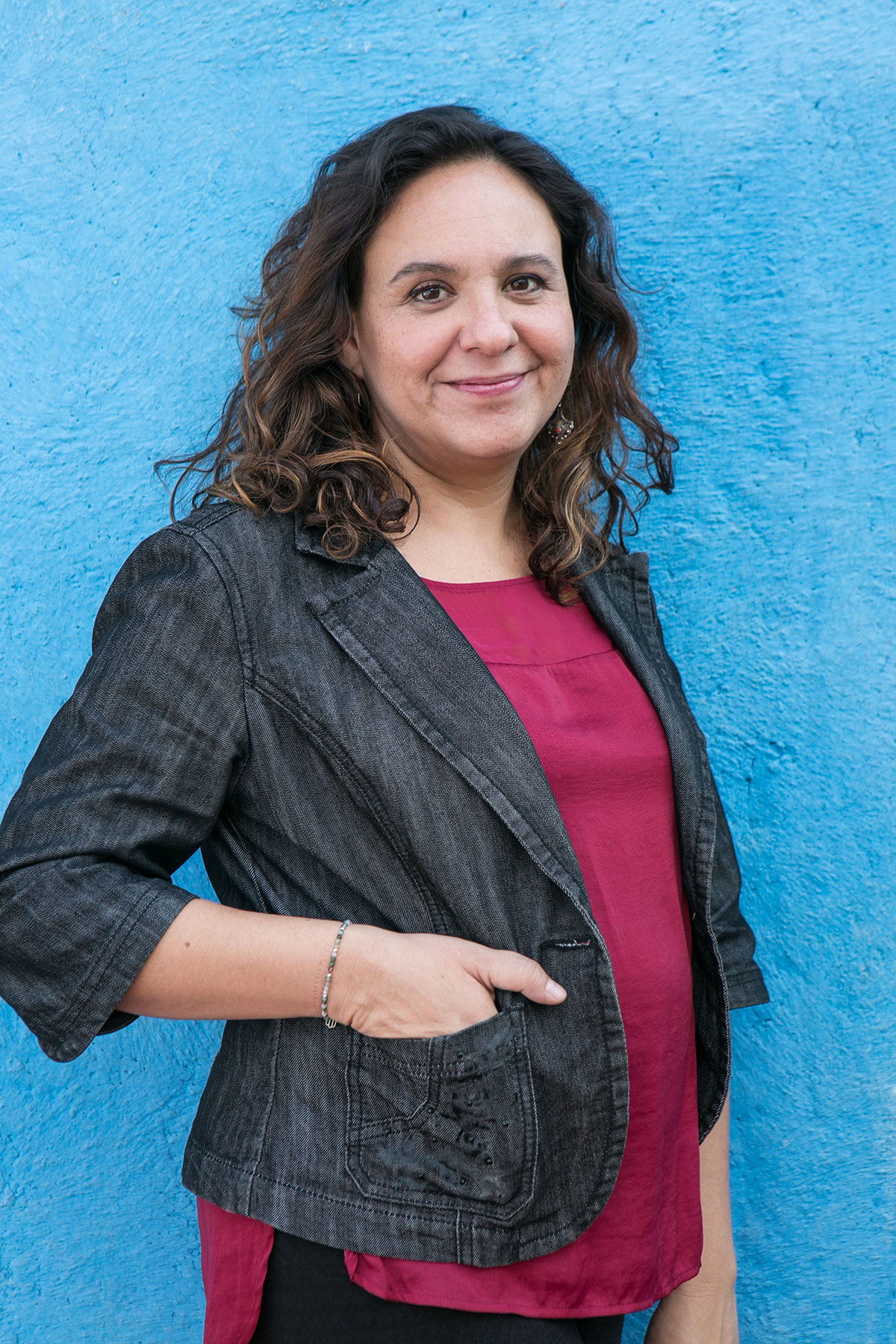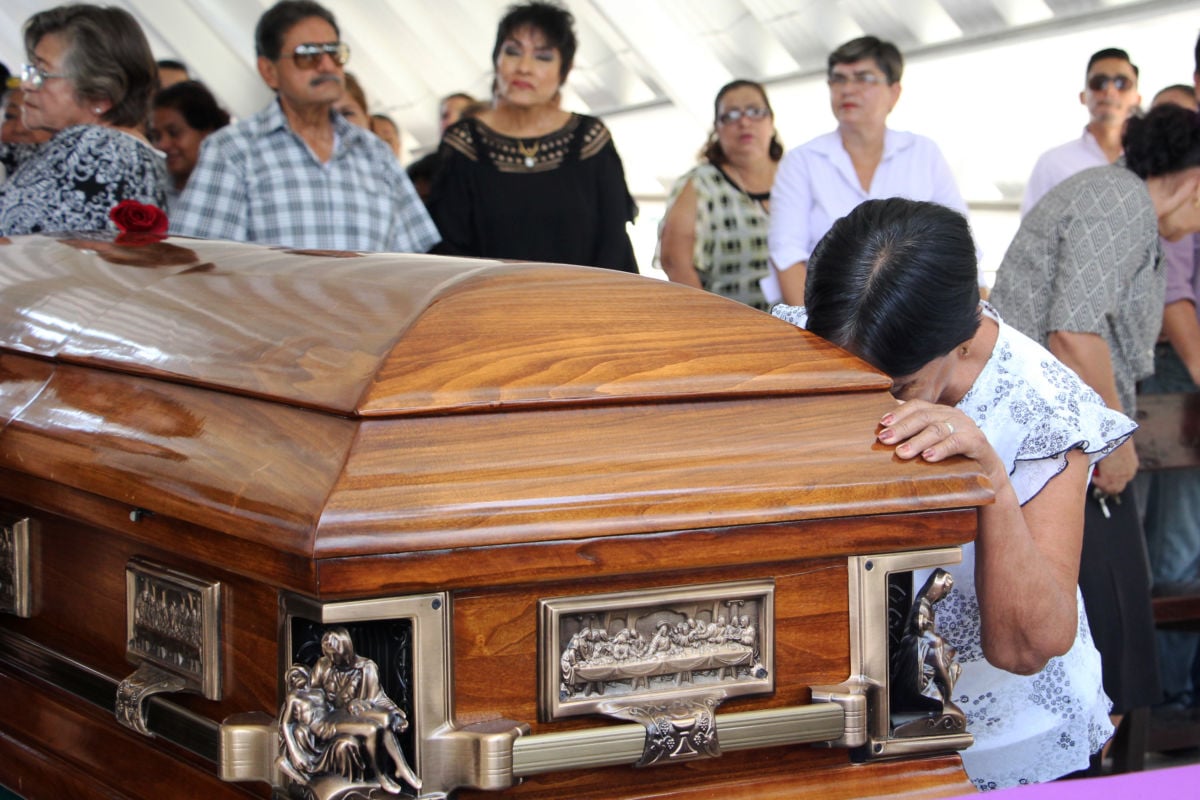Did you know that Truthout is a nonprofit and independently funded by readers like you? If you value what we do, please support our work with a donation.
What is press freedom and how do we know what it looks like? While we in the United States are absorbed in Julian Assange-related quandaries about just who is a journalist, and whether leaked information can or should compromise national security, reporters in Mexico are harassed and killed daily for covering a “drug war” launched in 2006 by President Felipe Calderón, but abetted by the U.S. government.
Marcela Turati is one of those reporters. She is an internationally respected investigative journalist, who, for over a decade, has covered the poverty and violence wreaked by this ongoing conflict, which has disappeared or killed tens of thousands. She has seen colleagues and friends murdered by drug cartels or police or government forces — it is difficult to know, in this devastating chaos, just where danger lies. She herself lives in danger. On May 21, I spoke to Turati in New York City, at Hunter College, where she had come to address a symposium entitled “Crisis for Mexican Journalists.” In this interview, Turati discusses how the drug war fueled attacks on journalists in Mexico, the role of the U.S., and how journalists are responding to threats on their lives.
Susie Day: How did you become involved in reporting on the drug war?
Marcela Turati: I was raised in Chihuahua in North Mexico, three hours from Ciudad Juárez. I was a normal journalist, until Felipe Calderón decided to fight the drug war. He militarized the country and sent soldiers to places like Ciudad Juárez. Killings and disappearances, human rights violations, extortion — all crime grew exponentially. Since then, 40,000 people have disappeared, and at least 250,000 people have been killed. Every day, mass graves are found. I began covering the drug war in northern Mexico for Proceso magazine, writing about murders, massacres, forced disappearances, the displacement of entire communities caused by this tragedy.
How does this affect Mexican journalists?
In Mexico, journalists are hunted. More than 140 have been murdered or disappeared in the last 12 years. We are gunned down in our homes or snagged as we leave the office or blown away on the street. Nobody’s paying for those crimes.
In today’s Mexico, being a journalist is like walking blindfolded on quicksand. In some areas, government officials are part of organized crime. When you interview them, you don’t know who you are talking to. Corruption and impunity are signs of this tragedy. This is why it’s important to defend speech to keep journalists alive — to keep all of us alive and with a strong spirit.
How can declaring a drug war cause all this havoc?

When Calderón sent the military, the federal police and the marines to combat the drug cartels, he also dissolved the municipal police. All the rules were broken. After the police left, the cartels wanted control of certain areas, and everybody started fighting. Once the military caught a capo, a drug lord, the people remaining in the cartel started killing each other to see who was the traitor or who would be the boss. It was really a mess.
Often, the police and the narcos are the same. It’s a different dynamic in every place. But they try to control information, because they need to control the whole territory.
What’s happened to people you know?
A reporter told me how someone called him one night to say that a commando squad had taken his colleague. This reporter got out of bed, got dressed, said goodbye to his wife, kissed his children. He sat down in the living room, waiting to be taken away. It was the longest night of his life. I asked him why he did this.
“Where could I run?” he said. “My only wish was to stop them entering my house and taking me in front of my family.” He survived, but his friend’s body was found the next day, discarded in the street, like trash.
Another day, a colleague asked how she could help a fellow reporter who lived in Veracruz, where 70 journalists were killed. He said, “Bring me a gun.” She asked him why. He said, “Not to kill them. To kill myself if they come for me. They don’t just kill you now; they torture you as well.”
I live with this killing of journalists I know. Armando Rodríguez Carreón in 2008. He covered the people killed daily in Ciudad Juárez. Regina Martinez Perez, our [Proceso] correspondent who investigated narco-politics in Veracruz, was killed in 2012. Rubén Espinosa Becerril in 2015, a photographer for my magazine in Veracruz. In 2017, Miroslava Breach, the most important investigative journalist in my hometown, was killed. She wrote about the narco-candidates. Javier Valdez, a close friend, was killed two months later in 2017. He was from Sinaloa, the land of the cartels. He founded the magazine Ríodoce.
Mexico’s new president, Andrés Manuel López Obrador, had to change the Constitution to create Mexico’s first National Guard. Yet he’s declared the drug war over.
We thought things might change with him, but attacks against journalists continue at the same pace. Another worrying element is Manuel’s criticism of the media. When we produce high-impact stories critical of his government, he paints journalists as an enemy.
Do you investigate what role the U.S. government plays in Mexico’s drug war? Is the Merida Initiative, that funds part of this war, a problem?
Yes. The U.S. gives military training and vehicles. They are not interested in human rights. Articles in the Dallas Morning News or ProPublica have exposed the link to massacres, like, in Allende, because of a DEA operation for which some [cartels] retaliated and killed the townspeople. In Tamaulipas and other towns, there were similar massacres. These were related to the Fast and Furious operation, when the FBI was tracking some illegal shipments. It was a big scandal.
Does the immigration crisis provoked by Trump complicate all this?
Yes. I cover massacres of migrants. They are often Central Americans and Mexicans from the poorer South of Mexico. They have to pass through terrible things, crossing to the United States. The women are often raped, extorted, kidnapped. Sometimes people disappear waiting to cross the border, because organized crime groups catch and enslave them. They become the workforce for the cartels. Many migrants disappear; we still don’t know the dimensions of that. They are anonymous.
Are you in danger, writing about this?
Yes. If you discover connections between cartels and the military and politicians, it’s really dangerous. Politicians and businessmen don’t want to be discovered. As journalists, we have to organize and take care of ourselves.
How do you take care of yourselves?
I created workshops for journalists about how to cover the grief of others. We begin talking about working with victims; then we start talking about all the fear and the guilt we feel inside. We cry and we hug a lot…. We have a lot of anger, a lot of depression. There is always someone who asks, “Am I still a journalist if I cry?” I think, “Who does not cry in Mexico these days? Who does not cry, covering the caravans of victims where, each kilometer [there] appear dozens of mutilated souls who have to hide the fact that their children have been killed?”
It’s sometimes important for me to do Indigenous rituals. Once, when we started investigating mass graves, our team went to an Indigenous ceremony to ask for spiritual help. I brought a shaman to our last workshop. I know people may call me a hippie, but covering mass graves, going to see bones — the grief and desperation of the families, the hopelessness…. Sometimes we talk about the importance of praying. That may not be a journalistic approach, but when you go to mass graves every week, you are looking to other dimensions. Yes, I have all the symptoms of burnout, because I’ve been doing this a lot of years. But journalism is part of my life, I can’t imagine doing another thing.
Talk about the new media you’re developing.
I founded Periodistas de a Pie for grassroots journalists, and Quinto Elemento to train young journalists. I and some colleagues created networks to defend freedom of speech, to work collaboratively. Now in Mexico, you don’t do things alone.
The best journalism in Mexico is the new websites, where journalists report what the big newspapers don’t. That’s why I started A dónde van los desaparecidos. Our most important investigation was a map of clandestine mass graves over 10 years. We know the government incinerates the majority of bodies without photographs or identification. So we created a database with dates, locations. You can see where people have found mass graves, how many bodies are in them, and which year.
Before that, I created More than 72, investigating the 2010 massacre of the 72 migrants in Tamaulipas. This was to help parents of disappeared migrants, who are usually farmers from El Salvador and Guatemala. We publish to see if some mother comes to claim her child. With this website and “A dónde van,” we’re trying to get information to people who need it. For example, the government incinerated 1,500 bodies in Jalisco, and didn’t record any information about them. We have to be really creative to get that.
What would you ask of people in the U.S.?
Once, I had to speak in front of some American journalists. They asked me that. I told them, “Don’t abandon us.”
The author would like to thank Camila Valle, who helped bridge the language barrier for this interview.
Media that fights fascism
Truthout is funded almost entirely by readers — that’s why we can speak truth to power and cut against the mainstream narrative. But independent journalists at Truthout face mounting political repression under Trump.
We rely on your support to survive McCarthyist censorship. Please make a tax-deductible one-time or monthly donation.
